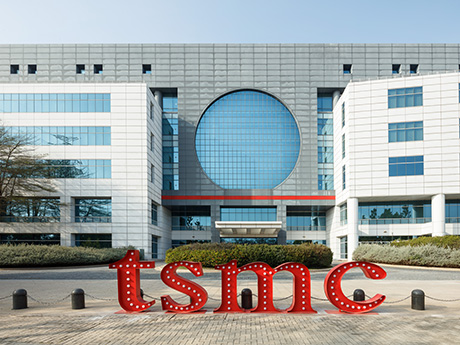PHOENIX — Taiwan Semiconductor Manufacturing Co. Ltd. (TSMC) has announced plans to build a third semiconductor plant on its TSMC Arizona campus in North Phoenix. In connection with the announcement, the U.S. Department of Commerce has entered into a preliminary memorandum of terms (PMT) with the Taiwanese company to provide $6.6 billion in direct funding through the CHIPS and Science Act.
The PMT also allows for the federal government to provide TSMC with up to $5 billion in loans. The company plans to apply for U.S. Treasury Department Investment Tax Credits of up to 25 percent of the qualified capital expenditure at TSMC Arizona. Additionally, $50 million of the CHIPS funding at TSMC Arizona will be used in the training and development of the local workforce, according to a statement issued by President Joe Biden.
The third factory will increase TSMC’s investment at the Arizona manufacturing site to more than $65 billion. TSMC is making the site the largest foreign direct investment in Arizona history and the largest foreign direct investments in a greenfield project in U.S. history.
The company estimates that the three facilities will employ roughly 6,000 direct high-tech jobs, 20,000 construction jobs and tens of thousands of indirect supplier and consumer jobs during the course of their construction and full operation.
The company is currently finishing the build-out of its first fabrication facility at TSMC Arizona, as well as the development of its second facility that was announced in late 2022. Production at the former facility is slated to begin in the first half of 2025, while production at the latter plant is slated to begin in 2028.
No timeline was given for the build-out or operations at the third facility. The size of the plant was also not shared.
Semiconductors, or computer chips, are an essential element of most all electronic and computing devices, including electric vehicles, phones, tablets, TVs, home appliances, solar panels and gaming consoles. Companies like TSMC that produce and test semiconductors are referred to as foundry companies as metal casting plays a central role during the manufacturing process.
To aid in funding the manufacturing of these semiconductor wafers domestically, the Biden Administration signed the CHIPS Act into law in 2022, which includes funding for $52 billion in incentives for foundry companies such as TSMC.
“Thanks to my CHIPS and Science Act — a key part of my Investing in America agenda — semiconductor manufacturing and jobs are making a comeback,” says Biden. “TSMC’s renewed commitment to the United States and its investment in Arizona represent a broader story for semiconductor manufacturing that’s made in America and with the strong support of America’s leading technology firms to build the products we rely on every day.”
According to The White House, the United States is on track to produce 20 percent of the world’s leading-edge semiconductors by 2030. Until recently, the United States didn’t produce “any of the most advanced chips,” says Biden.
“The CHIPS and Science Act provides TSMC the opportunity to make this unprecedented investment and to offer our foundry service of the most advanced manufacturing technologies in the United States,” explains Dr. Mark Liu, chairman of TSMC.
“Our U.S. operations allow us to better support our U.S. customers, which include several of the world’s leading technology companies. Our U.S. operations will also expand our capability to trailblaze future advancements in semiconductor technology,” adds Liu.
TSMC is based in Hsinchu, Taiwan and was founded in 1987. The company manufactured nearly 12,000 products last year for 528 customers, which include companies such as Apple, AMD and NVIDIA.
TSMC trades on the New York Stock Exchange under the ticker symbol “TSM.” The company’s stock price closed on Monday, April 8 at $142.79 per share, up from $89.02 a year ago, a more than 60 percent increase.
— John Nelson


